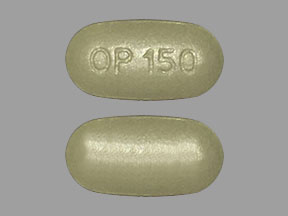Lynparza Disease Interactions
There are 4 disease interactions with Lynparza (olaparib).
Olaparib (applies to Lynparza) hematologic toxicities
Moderate Potential Hazard, Moderate plausibility. Applicable conditions: Myelodysplastic Disease
Olaparib might cause Myelodysplastic Syndrome/Acute Myeloid Leukemia (MDS/AML), sometimes with fatal outcomes. Care should be exercised when using olaparib in patients with a history of previous cancer or bone marrow dysplasia. Do not start olaparib until patients have recovered from hematological toxicity caused by previous chemotherapy (<= Grade 1). It is recommended to monitor patients for hematological toxicities at baseline and monthly thereafter for clinically significant changes during treatment. Interrupt olaparib for prolonged hematological toxicities and monitor blood counts weekly until recovery and discontinue treatment if MDS/AML is confirmed.
References
- (2014) "Product Information. Lynparza (olaparib)." Astra-Zeneca Pharmaceuticals
Olaparib (applies to Lynparza) hepatic impairment
Moderate Potential Hazard, Moderate plausibility. Applicable conditions: Liver Disease
Olaparib primarily undergoes hepatic metabolism via CYP450 3A4 and CYP450 3A5; the majority of metabolism is through oxidation with some metabolites undergoing subsequent glucuronide or sulfate conjugation. No dose adjustment is needed in patients with mild hepatic impairment. It is recommended to use caution when using olaparib in patients with moderate or severe hepatic impairment as there are no data available. Close monitoring is recommended.
References
- (2014) "Product Information. Lynparza (olaparib)." Astra-Zeneca Pharmaceuticals
Olaparib (applies to Lynparza) pulmonary abnormality
Moderate Potential Hazard, Moderate plausibility. Applicable conditions: Pulmonary Impairment
Pneumonitis, including fatal cases, occurred in <1% of patients treated with olaparib. It is recommended to interrupt treatment if patients present new or worsening respiratory symptoms such as dyspnea, cough and fever, or a radiological abnormality. Assess for the source of symptoms and if pneumonitis is confirmed, olaparib should be discontinued and the patient treated appropriately.
References
- (2014) "Product Information. Lynparza (olaparib)." Astra-Zeneca Pharmaceuticals
Olaparib (applies to Lynparza) renal impairment
Moderate Potential Hazard, Moderate plausibility. Applicable conditions: Renal Dysfunction
In a olaparib renal impairment trial, the mean AUC increased by 24%, and the Cmax increased by 15%, in patients with mild renal impairment. In patients with moderate renal impairment, the AUC increased by 44% and the Cmax by 26%. No dose adjustment is needed in patients with mild renal impairment. The dose of olaparib in patients with moderate renal impairment should be adjusted according to the prescribing information. It is recommended to monitor for toxicity all patient with renal impairment. The pharmacokinetics of olaparib have not been evaluated in patients with severe renal impairment or end-stage renal disease.
References
- (2014) "Product Information. Lynparza (olaparib)." Astra-Zeneca Pharmaceuticals
Lynparza drug interactions
There are 567 drug interactions with Lynparza (olaparib).
Lynparza alcohol/food interactions
There are 2 alcohol/food interactions with Lynparza (olaparib).
More about Lynparza (olaparib)
- Lynparza consumer information
- Check interactions
- Compare alternatives
- Pricing & coupons
- Reviews (17)
- Drug images
- Side effects
- Dosage information
- During pregnancy
- FDA approval history
- Drug class: PARP inhibitors
- Breastfeeding
- En español
Related treatment guides
Drug Interaction Classification
| Highly clinically significant. Avoid combinations; the risk of the interaction outweighs the benefit. | |
| Moderately clinically significant. Usually avoid combinations; use it only under special circumstances. | |
| Minimally clinically significant. Minimize risk; assess risk and consider an alternative drug, take steps to circumvent the interaction risk and/or institute a monitoring plan. | |
| No interaction information available. |
Further information
Always consult your healthcare provider to ensure the information displayed on this page applies to your personal circumstances.


